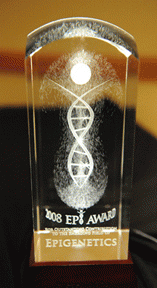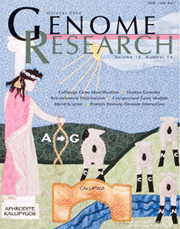It’s unlikely that there was a conventional thinker in the hotel ballroom when the first annual Epigenetic Medicine Award was presented in Los Angeles on Thursday night [1]. Leading edge scientists, psychologists and other health professionals gathered as a pioneering researcher, as well as a new branch of science, were honored in a groundbreaking event.
While the current medical/science model is entrenched in Newtonian physics, and is based on matter, to the exclusion of invisible forces, Epigenetics has emerged as a quantum science.
According to Soul Medicine Institute (SMI), “Epigenetics is the new science describing influences that alter the expression of genes.” Epi- means above; so epigenetic means control of DNA from above or outside the gene. SMI notes that, “New research shows that consciousness (beliefs, feelings, prayer, energy, thought) may have epigenetic effects.”
Dawson Church, Ph.D. notes that, “the picture ingrained in the public mind (is) that genes determine everything from our physical characteristics to our behavior. Even many scientists still speak from the assumption that our genes form an immutable blueprint that our cells must forever follow. [2]” However, the new science of epigenetics tells us that “genes are merely blueprints, and it is the environment … that determines genetic expression,[3]” according to cellular biologist Bruce Lipton, Ph.D.
One of the keynote speakers at the awards event, Lipton’s topic, The Biological Musings of a Free Radical, was peppered with humor, as he passionately shared a complex subject with the eager audience. Lipton’s pioneering stem cell research began in the late 60s. His research at Stanford University’s School of Medicine, between 1987 and 1992, revealed that the environment, operating through the membrane (of the cell), controlled the behavior and physiology of the cell, turning genes on and off.
Lipton’s discoveries, which ran counter to the established scientific view that life is controlled by the genes, presaged the new science of Epigenetics.
The historic, first Epigenetic Medicine Award went to Randy Jirtle, Ph.D., director of the Laboratory of Epigenetics and Imprinting at Duke University. Dr. Jirtle is a professor of radiation oncology at the school's medical center. His witty presentation cited his groundbreaking research with agouti mice, which proved that a mother's diet during pregnancy can influence gene expression in her offspring by altering the epigenome.
(Note: You can view every article as one long page if you sign up as an Advocate Member, or higher).









